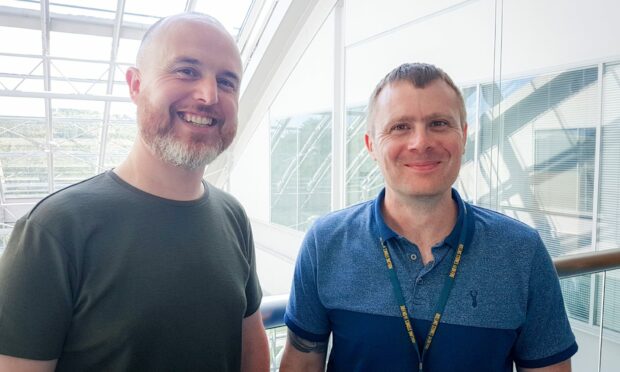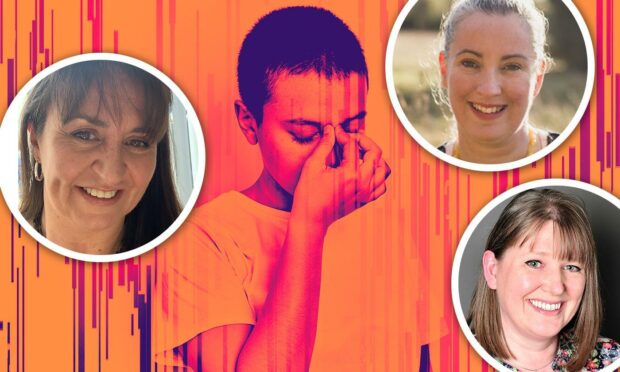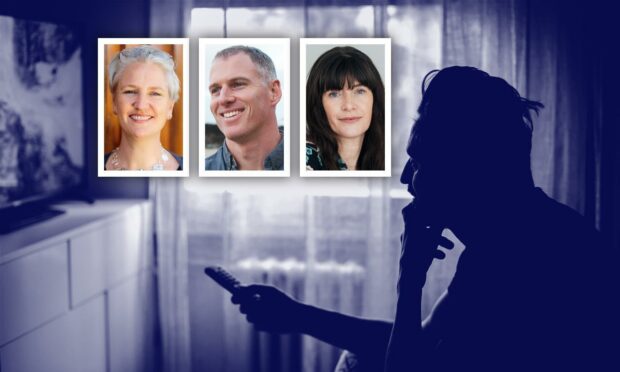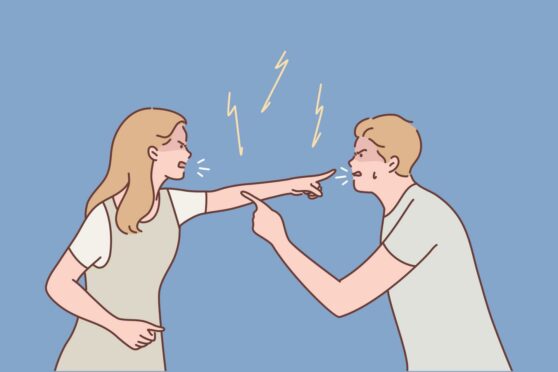Robert Gordon University’s mental health nursing lecturers Dan Warrender and Scott Macpherson make the thoughtful case for why it’s time to challenge mental health stigma.
Take a moment to remind yourself that you are a human being, living alongside other human beings on a planet which spins through space.
When we take a step outside of ourselves and let our thoughts zoom out into the wonderful mysteries of the universe, we are very quickly reminded how small we are.
Regardless of size or cosmic significance, human beings are marvellous meaning makers and architects of our own understandings. Every one of us thinks, feels and acts, with much more in common than that which sets us apart.
Yet, we draw an incredible amount of lines between us. We draw lines between pieces of ground and call them countries, and the people within them we assign different nationalities.
We define ourselves and each other by race, sex, gender, sexuality, employment, and age. We identify differences in the things we like, from moral values to the sports teams we support.
Finally, we identify differences in our thoughts, feelings, perceptions and behaviour. We diagnose people with mental illnesses and disorders, which may lead us to mistakenly believe that those people are different from us in fundamental ways—perhaps weaker or more dangerous.
We can forget, to some extent, that they are an individual, instead seeing only the label: the “schizophrenic” or the “drug user”.
These beliefs can lead to people being treated unfavourably, being seen purely as label with a devaluation of the person behind it.
This process is commonly known as stigmatisation.
‘Mental health is everyone’s business’
The diagnosis of particular mental health problems may also inadvertently and mistakenly lead us to believe that we are either mentally well, or mentally ill.
We all have mental health, existing on a continuum which fluctuates each day, sometimes for better, sometimes for worse.
Remembering that mental health is everyone’s business, and a core aspect of human experience, should bring us all together rather than divide us.
Yet more than two-thirds of people in Scotland with mental health problems have sadly still experienced discrimination and been treated unfairly.
These are our fellow human beings. They are me and you. They are us.
How do we tackle stigma?
In order to break down stigma, we need contact with members of stigmatised groups.
Contact and engagement with people who have mental health problems can help us to develop understanding of the person behind the label, and acceptance of them as a fellow human.
Direct experience of groups we wouldn’t normally associate with can act as a social mirror, where we often see reflections of ourselves, not “them” or “others”.
However, it is often the case when we encounter someone who appears to be mentally unwell that we do our best to avoid them because we feel awkward or scared.
We would invite readers to consider their own responses to people whom they may treat differently.
Whilst this behaviour may not necessarily be out of malice, it has a huge impact.
We are social animals, and experiences of rejection, avoidance and discrimination cut to the core of our human experience.
Stigma often hurts as much, sometimes maybe more than the mental health problem itself. Stigma impedes recovery, and it harms.
Focus on mental health – not mental illness
See Me is Scotland’s programme to end mental health stigma and discrimination.
The campaign has shown some success in that more than half of Scotland’s population say their perceptions of people with mental health problems have improved over the past 10 years.
However, we can’t stop there.
Tackling mental health stigma has often been seen as the responsibility of those who have experienced it, and this may be because when we talk about “mental health”, people immediately think of “mental illness”.
They think of illness, difference, and think “that’s not me”—wrong. We need to move past individuality and “Seeing Me”, the person struggling, and for everyone to stand up and say “See Us”, the collective.
Akin to several of the worlds many other problems, we can only make a difference together.
Despite the differences we inevitably draw between us, we are all human beings, we all have mental health, and any one of us can experience mental health problems.
Any alien consciousness zooming in on the planet earth from the outer reaches of space would see the pale blue dot which we call home. They would see us. It may be time for us to see each other.
You can join the conversation on social media, using #SeeMeSeeUs, and tell us why you support the movement, what action you’ll take to make change, show support, or share your story.
You can find out more about the See Us campaign at: www.seemescotland.org/SeeUs










